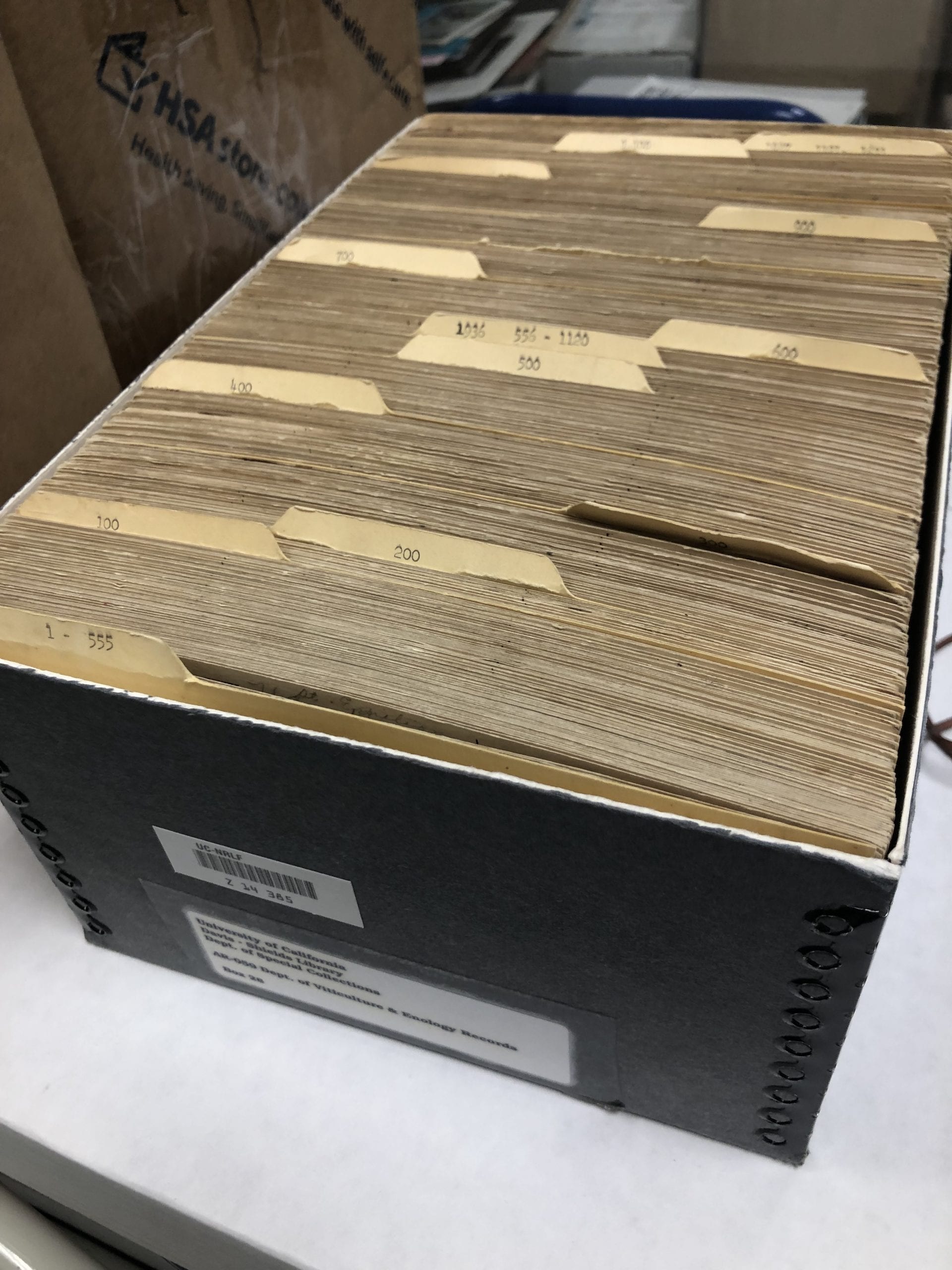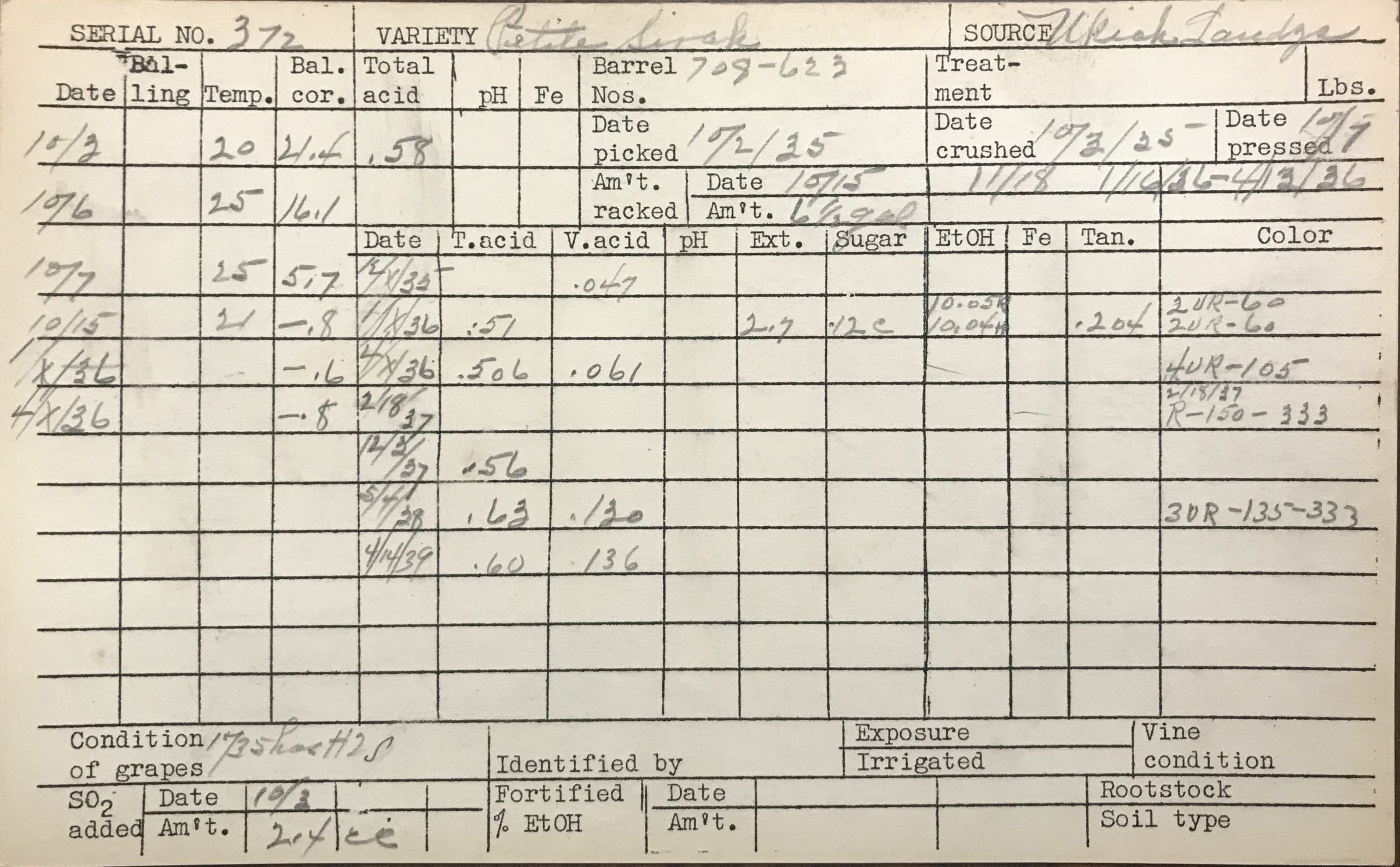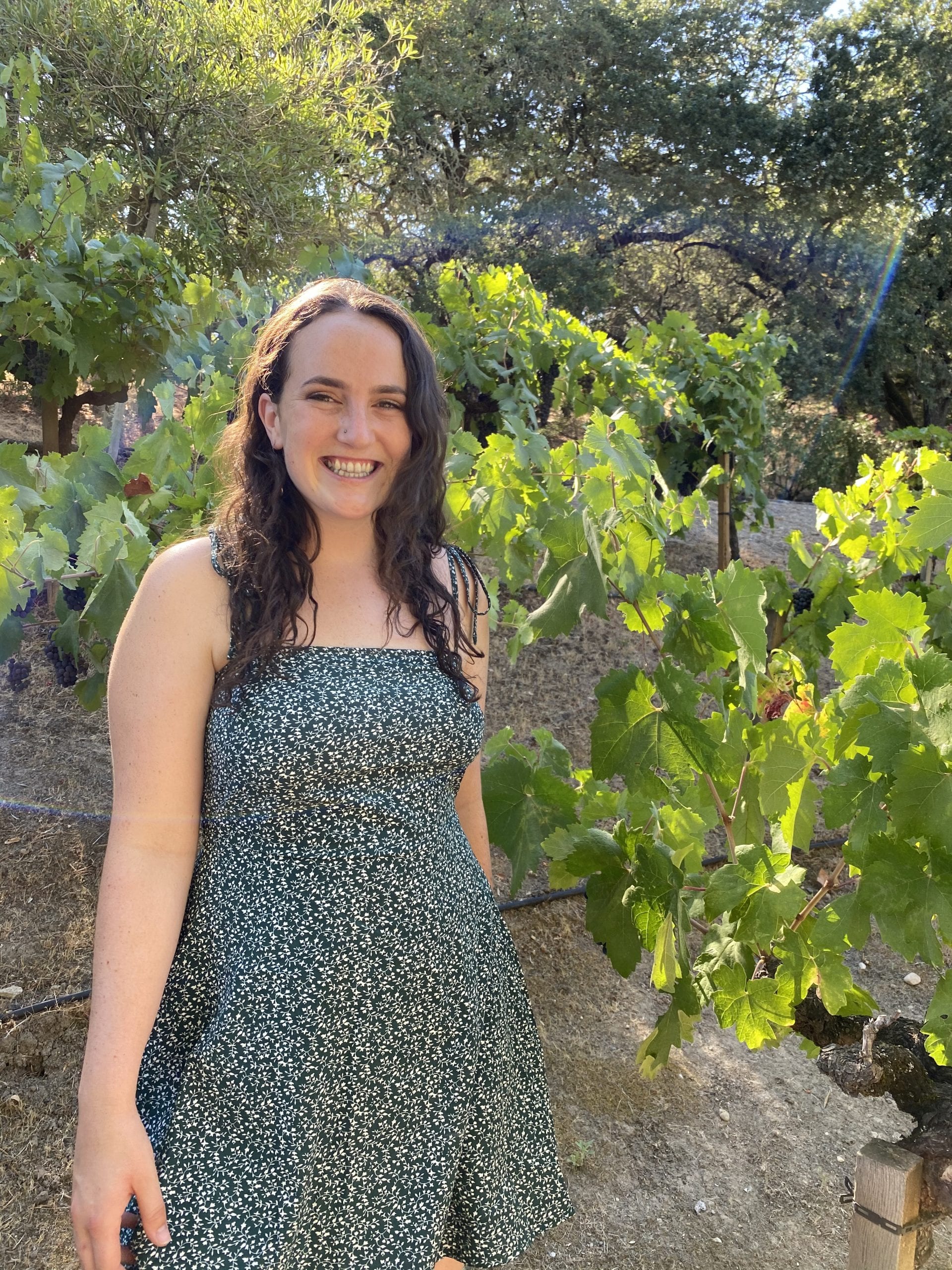Two women using UC Davis archives to update a seminal California wine study
Today is International Women’s Day, and we’re recognizing two women who have been working with archival materials, and a team of collaborators in the Viticulture and Enology Department, to update a seminal study led by two of California’s pioneering wine men. This blog post was written by Kayla Elmendorf, one part of the team, who is an undergraduate Viticulture and Enology student.

During the 1930s, in post-Prohibition America, UC Davis was charged by the state with helping to revitalize the California wine industry, by identifying which grape cultivars would make the best wine. This began a research effort that was to put UC Davis at the forefront of turning winemaking into an understood science. Two Viticulture & Enology professors, Albert Julius (A.J.) Winkler and Maynard Amerine, led a study over nearly a decade (1934–1942) that collected grape and wine data on thousands of index cards that today are housed in Archives and Special Collections.
The results of the study were published in 1944, during World War II. The cards include information on grape varieties, vineyard locations, harvest dates, temperatures, pH and acid levels. These data were used to create the revolutionary Winkler Index, which divided geographical areas into five different climate regions based on heat accumulation, or degree days, during the growing season, to help winegrowers decide which grape varieties would be most successful and produce the best wine for their plot of land.
Wine Index Evolves to Account for Climate Change
The Winkler index, however, is limited in its usefulness today. Since the core of the model depends on degree days determined by historical data, the index does not account for the unpredictable and extreme weather patterns of climate change. (Take, for example, a week of over 70℉ in the Napa Valley in early March 2020, which was followed by the warmest growing season on record for many regions in California, not to mention the smokiest.)
In order to address these changes, and their effect on agriculture in California, UC Davis researchers are studying plant resilience. Viticulture & Enology professor Dr. Elisabeth Forrestel, who studies heat and drought resistance in cultivated and wild grapes, is using data from the original Winkler/Amerine study and conducting new research to update the Winkler Index.
Extracted Historical Data Could Offer New Insights in Grapevine Heat Stressors
Over several months, I have worked with Dr. Forrestel to extract information from the cards so that the data can be modeled and further analyzed. We are using the historical data to conduct comparisons between grape varieties and regional temperature variations over time. With funding generously donated by Warren Winiarski, founder of Stag’s Leap Wine Cellars, Dr. Forrestel is working with the Department of Viticulture & Enology to study this data alongside new data gathered from her lab research and fieldwork to understand grapevines’ responses to heat and drought stressors.
All this information together will allow her to begin to create an updated version of the decades-old Winkler Index. Furthermore, the data from the card records will be studied alongside information gathered through innovative fieldwork and collaborations with industry and the department.

Dr. Forrestel spoke about her research on a panel last November with San Francisco Chronicle wine columnist Esther Mobley and winemaker Dan Petroski as part of Savor, the library’s lecture series which explores contemporary topics in food and wine at the intersection of UC Davis research and industry.
Kayla Elmendorf is undergraduate student at UC Davis majoring in Viticulture & Enology.
